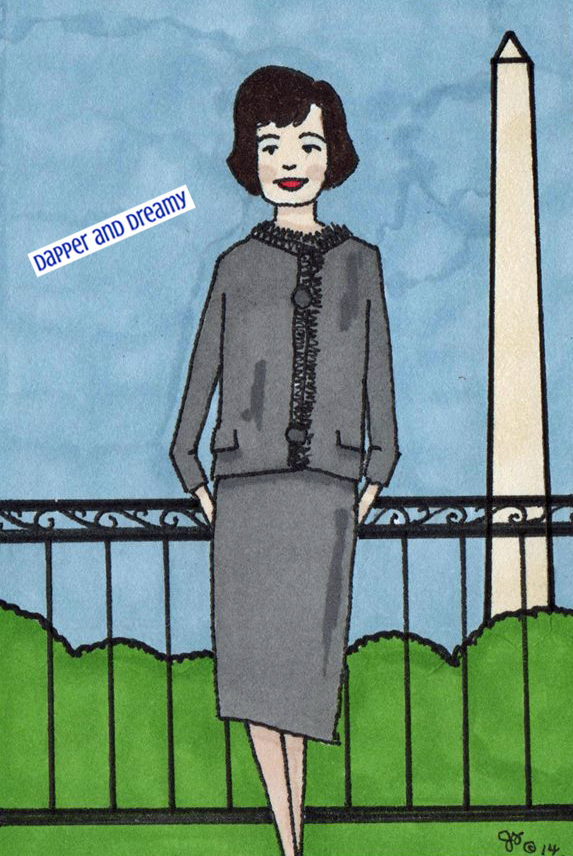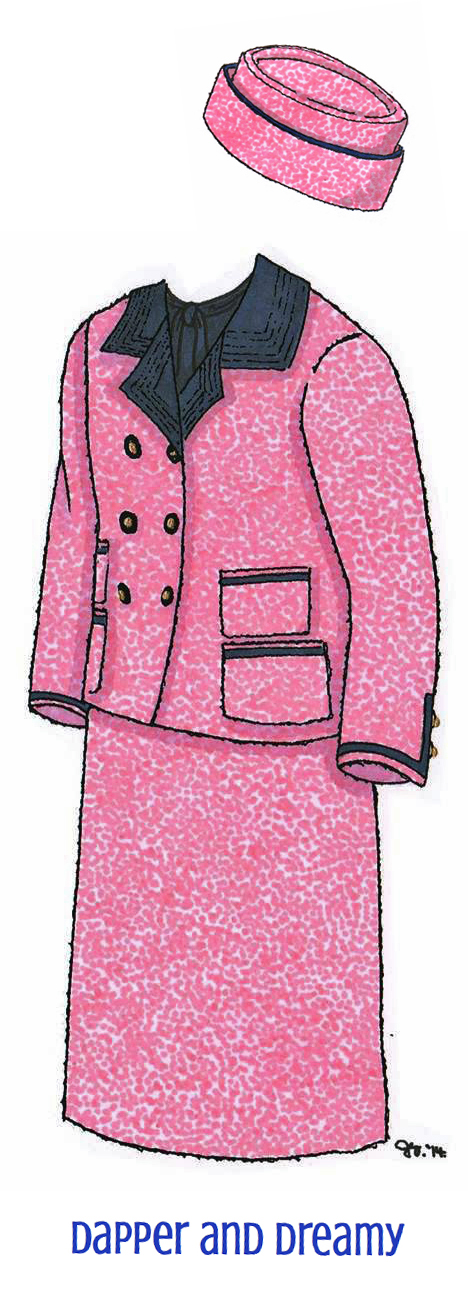Biography
 Jackie's Biography (Official Congressional Record - 103 U.S. Congress)
Jackie's Biography (Official Congressional Record - 103 U.S. Congress)
Jacqueline Lee Bouvier was born July 28, 1929, to Janet and John Bouvier III in Southampton, Long Island, New York. She en- joyed the country life with her parents and her younger sister Lee. In what became life-long interests, she developed an expertise at horseback riding, an enduring love of books, and a great delight in writing poetry. Throughout her life, she chronicled special family events by combining her creative talents in a unique, and often whimsical way, to produce illustrated journals, poetry, scrapbooks, and paintings.
After her parents divorced and her mother remarried Hugh D. Auchincloss, the family expanded to include his children and a new baby half-sister and brother, Janet and Jamie Auchincloss.
Jacqueline attended Miss Porter’s School in Farmington, Connecticut where she excelled academically. She was accepted at Vassar and attended for one year. She then studied in Paris, becoming fluent in French, before transferring to George Washington University in Washington, DC where she earned a degree in French literature in 1951.
Following her graduation, Jacqueline took a job as the ‘‘Inquiring Camera Girl’’ for the Washington Times-Herald, and formally met then-Congressman, soon-to-be-Senator, John F. Kennedy, at a dinner party. ‘‘I leaned across the asparagus and asked her for a date’’ he quipped. They were married on September 12, 1953. Their early years together were marked by the great sadness of a stillborn daughter, and life threatening back surgery for Senator Kennedy. But in 1957, their adored daughter Caroline was born. ‘‘I used to sit and wonder how it could be possible to be any happier,’’ Jackie said. In November of 1960, after the successful campaign for the Presidency, their happiness doubled with the birth of John F. Kennedy, Jr.
Jacqueline Kennedy became, at 31, the century’s youngest First Lady and from the moment of her magnificent debut at the Inauguration, captivated the Nation and the world. She began a com- plete restoration of the White House and encouraged Americans to take special pride in their Nation’s heritage and the effort to preserve it. Her televised tour of the restored mansion was watched by 50 million viewers, and the resulting increase in tourists who bought her newly created ‘‘White House Guide Book’’ has continued to fund White House preservation and acquisitions to this day. She established the first office of White House Curator, and is credited with saving the historic townhouses and heritage of Lafayette Square.
She promoted an awareness and appreciation of culture and the arts by showcasing the finest in those professions at special White House events. Intellect was honored with a dazzling din- ner for all the Nobel Prize winners. The state occasions she hosted with President Kennedy continue to be remembered for their sparkling originality, exquisite taste, and classic elegance. She intuitively understood that the White House belonged to all the people, and she wanted it to be an expression of pride in American achievement. She said simply, ‘‘I just think that everything in the White House should reflect the best of America.’’
President Kennedy summed up her impact abroad when he intro- duced himself as ‘‘the man who accompanied Jacqueline Kennedy to Paris.’’ Her natural style, gracious personality, and ability to speak numerous languages, created an outpouring of affection. At home, during a time of civil rights tension, she quietly made her position clear by integrating Caroline’s White House preschool group.
In August of 1963, she and the President shared the great sorrow of the tragic loss of their prematurely born son, Patrick Bouvier Kennedy, who died a few days after his birth. But the Na- tion, and the world, truly came to understand and appreciate her valiant strength in November of 1963. During the agonizing four days of her husband’s assassination and funeral, her majestic example of remarkable courage and fortitude has never been forgotten. At a time of unbearable grief, she held the country together.
In 1964, she reestablished her life in New York City and devoted herself to her children. She campaigned for Robert F. Kennedy during his bid for the Presidency and his tragic loss brought additional grief to her family.
In October of 1968, she married Aristotle Onassis, and she and the children divided their time between Greece and New York. She became a widow again, when he died in 1975.
Concentrating on her love of books, she went to work and became a respected professional in the field of publishing, as an editor at Viking and Doubleday. She continued her efforts on behalf of historic preservation and was especially proud to have helped to prevent the destruction of New York’s Grand Central Station. In 1980 she helped Senator Edward Kennedy in his campaign for President, and the John F. Kennedy Library continued to benefit from her ongoing devotion and involvement in its programs and such events as the Profile In Courage Award.
Jacqueline found tranquillity and joy in the companionship of her close friend, Maurice Templesman. But of all her accomplishments, she was most proud of having been a good mother to Caroline and John, often in the most difficult of circumstances. ‘‘It’s the best thing I’ve ever done,’’ she said. She exulted in their successes and became a doting grandmother to her three grandchildren.
In her final year, she set an example yet again of uncommon courage and spirited grace, as she battled illness. In her final days she was, as she had become to the Nation throughout her life, an inspiration.
Source: gpo.gov
Image copyright Jake Gariepy (Dapper and Dreamy) - Jackie's 1961 Chez Ninon designed grey wool suit.



